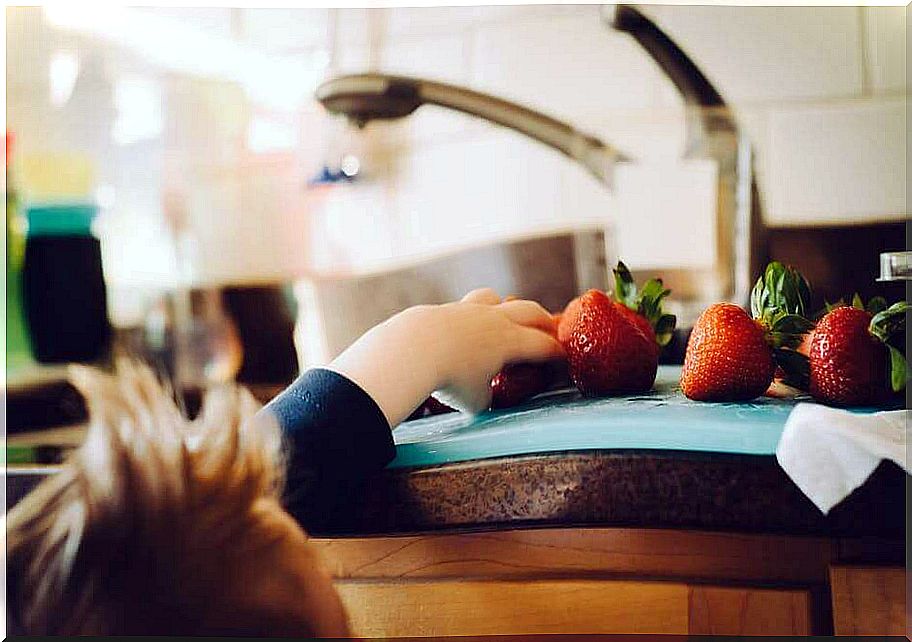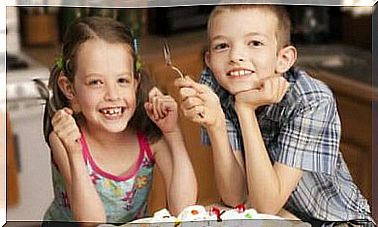Overprotected Children: The Danger Of Narcissism – Being Parents

Children’s happiness is a priority for parents. We are afraid that our child will suffer, that he will be traumatized and that this will cause difficulties in his adult life. They are our greatest joy, and that is why we want to give them all the facilities and opportunities that we have not had. The problem is, we don’t let them try very hard, and in the long run, that’s worse than any childhood trauma.
The hyper-protection is a toxic behavior regarding parents. The child considers himself superior to others and thinks he deserves everything he wants without even lifting a finger. In addition, it prevents him from maturing and being able to deal with the small unforeseen events of everyday life, which will have an impact on his adult life.
They become narcissistic, rude and weak children. They can speak 3 languages at 7 years old, but do not know how to tie their laces or set the table. They have an exaggeratedly high ego and think they have a right to everything. In order to deal with it, it is necessary to know this behavior and its causes.
What is narcissism ?
It’s a personality disorder. The main characteristics of narcissism are grouped into one: excessive admiration for oneself. They overestimate their abilities, lack empathy, and need the attention of others to feel good. Often their behavior generates antipathy from others and prevents them from having healthy friendships.
They also exhibit a series of habitual behaviors, usually associated with poor upbringing, when in reality parents have tried just the opposite:
- They can only be understood by people of the same “rank” or whom they consider superior.
- They believe they are entitled to everything.
- In their relationships, they mistreat others. They are selfish and take advantage of the people around them.
- They lack empathy, as we have already mentioned.
- They are very arrogant.
- They think others are jealous of them.
- They have very low self-esteem. That is why they need constant admiration.
Teaching is not transmitting knowledge, but creating the possibility of its production or construction.
-Paulo Freire-
How to avoid the problems of infantile narcissism?
Although what we have mentioned belongs to a pathology, it is very common to find characteristics of it in many overprotected children. It is our choice to educate them properly so that this process does not go any further. Once we have come to terms with this, the next question to ask is, how can we act about it?
Do not give in to their every whim
We must make it clear to them that we will not give in to all their demands. If they really want something, they must deserve it. They should know that everything they own has required effort: that of their parents. Outside of the house, they won’t always get what they want, and it is best if they get used to it. Otherwise, they could become very toxic people .

Teach them to respect others
Obviously, it is very important that the child feels loved, but it is just as important that he does not feel superior. We have to teach him that, although he is very special, there are many other special people in their own way.
The child must respect and love them all. A good motivation for this would be to allow him to go and play in other children’s houses and have other children come to play at his house. He would thus get used to sharing and being in contact with families other than his own.
Every act has consequences
If he behaves badly, he will be punished. If he is doing well, he will receive a small reward. This will serve as a stimulus for him to change his behavior and know that he is not untouchable.
It is not about amplifying his mistakes or humiliating him for it either, but we must not let them go. He must learn to accept the consequences of his actions. Thus, in the future, he will think before acting.

Let them face small challenges
The biggest downside to narcissism is that it prevents our children from maturing. Let them face small daily challenges, like learning to make bed in a short time or to tie shoelaces in a more beautiful way.
With these little challenges, the child will learn to do things on his own. You can also motivate him to help out in the kitchen by letting him do his own mixes and whatever tests he likes. And then, by the way, he could get used to eating healthy.









